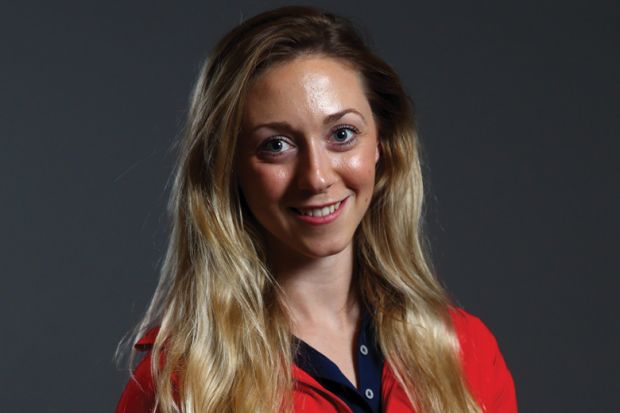The co-captain of Great Britain’s women’s wheelchair basketball team believes that insights from her sports psychology degree could give her the edge at the Paralympic Games.
Sophie Carrigill, 22, was due to lead Team GB out for their first fixture in Rio de Janeiro on 8 September, just weeks after being awarded a first at the end of her course at the University of Worcester.
She was paralysed from the waist down at the age of 16 after being involved in a car accident in the US, and nearly died.
Worcester’s indoor arena is the UK’s first indoor facility specifically designed to meet the needs of wheelchair athletes, and is now the training base of British Wheelchair Basketball.
But Ms Carrigill is also helping to put what she learned in the lecture theatre into action on the basketball court.
“I’ve had so much support around psychology and that has helped with my own personal game and leadership skills and, after that, being able to captain the team,” she said.
Ms Carrigill, who started playing wheelchair basketball little over a year after her accident, explained that it was her recovery that had triggered her interest in psychology.
“I was involved in a really traumatic accident and the doctors had written me off and thought I would never come around,” she said. “Obviously something in my mind was keeping me alive when my body couldn’t and that inspired me to learn more about psychology, the mind, and how that can happen.
“That has given me an insight into life after trauma and how different people can deal with that, and it has helped me through my sporting career. I have learned about how the mind works in pressured situations and about how to use different techniques to deal with that.”
Ms Carrigill, who made her international debut in 2013 and won a gold medal at last year’s Wheelchair Basketball World Championship, said that balancing preparations for Rio with her final year at Worcester had been challenging, but rewarding.
“I thrive on challenges and pressure, that’s when I do best,” she said. “I knew I wanted to do well in these situations so it was about being organised and scheduling, knowing when deadlines were and knowing I had to start assignments earlier than peers because I have a busy schedule.
“It’s about taking work with you on trips and keeping on top of everything, and not letting things get to you so it becomes overwhelming.”
Great Britain finished the London Paralympics in seventh place, but Ms Carrigill is hoping for an improvement this time around.
“As a team we have progressed so much since the last Paralympics and it would be only right to set our goals high,” she said. “Our ultimate goal is to make a semi-final and perform well through the pool stages and then a quarter-final, and we feel that is totally possible, with the team having gone from strength to strength recently.”
Register to continue
Why register?
- Registration is free and only takes a moment
- Once registered, you can read 3 articles a month
- Sign up for our newsletter
Subscribe
Or subscribe for unlimited access to:
- Unlimited access to news, views, insights & reviews
- Digital editions
- Digital access to THE’s university and college rankings analysis
Already registered or a current subscriber? Login







